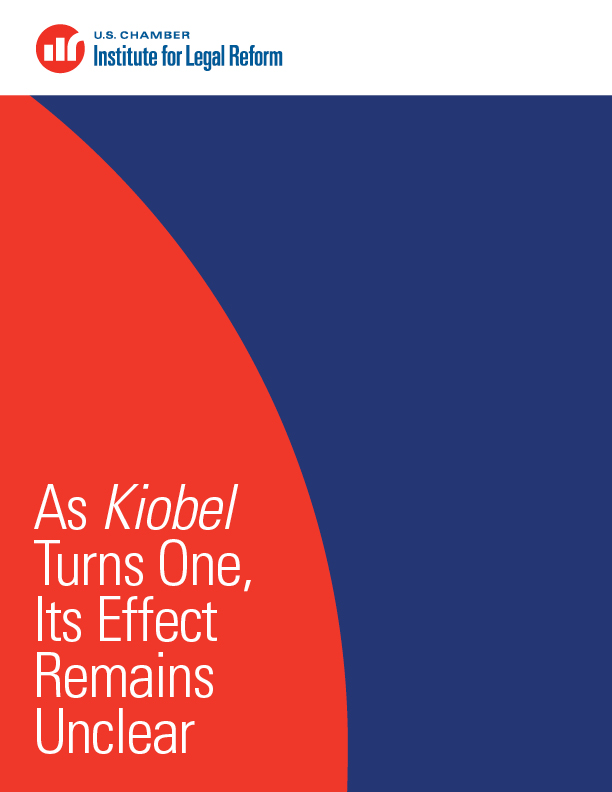In Kiobel v Royal Dutch Petroleum, the United States Supreme Court issued a landmark decision that should curb expansive interpretations of the Alien Tort Statute (ATS). In that case, the Court held that a Nigerian plaintiff could not bring suit under the Alien Tort Statute (ATS) against a Dutch corporation in a New York federal district court for alleged human rights violations occurring in Nigeria. Applying the presumption against extraterritoriality to the ATS (a presumption that federal law applies only within the territory of the United States absent clear congressional language to the contrary), the Court held that since all relevant conduct occurred outside the United States the ATS could not reach the plaintiffs’ claims. The Court went on to explain that in order for an ATS claim to survive a motion to dismiss, it must “touch and concern” activities occurring in the “territory of the United States” and “do so with sufficient force to displace the presumption against extraterritoriality.”
While the ATS goes back as far as the Founding, it lay dormant until 1980 when it was used to bring torturers and human-rights violators, who were mostly former foreign government, officials to trial in the United States. However, it wasn’t long before this new interpretation of the ATS was used by plaintiffs’ lawyers attempting to bring suit against corporations (mostly U.S.) for alleged human rights violations committed abroad. In Kiobel, the Supreme Court held that the ATS does not reach conduct that “took place outside the United States.” Since nearly all ATS claims filed against corporate defendants concern allegations that corporations aided and abetted torts committed by other (generally foreign state) actors abroad, ATS claims filed against corporations will likely be dismissed by courts. Indeed, federal case law is presently moving in this direction.
As explained in “Should State Law Rule the World?”, authored by Donald Earl Childress III of the Pepperdine University School of Law, the Kiobel decision is welcome news to corporate defendants. Many corporations are well aware that the ATS has served as a favored vehicle in recent years for plaintiffs to challenge overseas business practices, especially the practices of U.S. corporations. Yet, plaintiffs’ lawyers already have an ATS replacement: state law.
While federal ATS claims have now been largely foreclosed by the Court’s Kiobel decision, it is likely that plaintiffs’ lawyers will plead state law claims (particularly common law tort claims) against corporations to challenge overseas business practices. Such claims will substitute garden-variety, state law torts for federal ATS claims. In some cases, these claims will be pled in the first instance in U.S. state courts.
Childress argues that federal and state courts should exercise caution before applying state law to conduct outside the United States. Childress also outlines possible federal legislation that would clarify federal fora and choice of law rules to implement the Court’s directive in the Kiobel case.
Going forward, corporations need to turn their attention to the application of U.S. state law in transnational tort cases following the Kiobel case. Encouraging caution on the part of federal and state courts interpreting state law and potential Congressional action is but a first step in resolving these important transnational human rights and business issues. To do otherwise risks decades of confusion that will hurt business interests and frustrate the cause of justice worldwide.
View PDF
